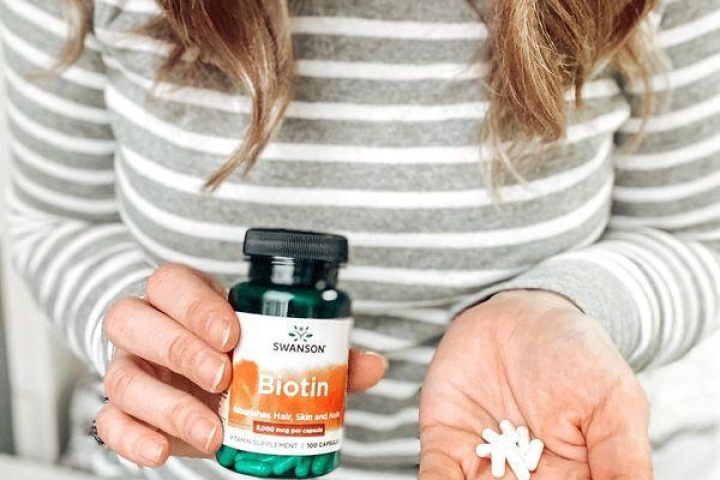MSM Benefits Joint Health & Beyond
MSM and its Benefits
There's one constant in life that we can all count on: aging. No matter your current age, you're aging. It's an inevitable part of life, and the side effects vary widely among individuals and at different stages.
One of the first areas to show noticeable signs of aging is our joints. Fortunately, modern science has provided options to support joint health, enabling activity at any age. Among these, three dietary supplements stand out for their ability to ease the effects of aging on joint health. You've likely heard of glucosamine and chondroitin, the two most popular joint health supplements. Today, however, we'll focus on the lesser-known methylsulfonylmethane, also known as MSM.
What Is MSM?
MSM is an organic sulfur compound naturally present in our bodies, as well as in many plants and animals. MSM was first researched by Stanley Jacob, M.D., a surgeon at Oregon Health Sciences University Medical School, who also studied DMSO (dimethyl sulfoxide), from which MSM is derived.1
As we age, our joints become stiffer and less mobile, and our cells also suffer, becoming more rigid. Given that bio-available sulfur is crucial for longevity, Methylsulfonylmethane is gaining attention for its potential benefits beyond joint health. Although Dr. Jacob did not claim that MSM could repair or restore joint function, he found it effective in easing joint issues related to aging. Subsequent animal studies suggest MSM might slow joint degeneration, and human studies indicate potential benefits for exercise recovery.2
In nature, MSM is derived from sulfur during rainstorms—a natural restorative process by Mother Nature. While MSM is present in various unprocessed foods, cooking often destroys its functional benefits. Additionally, modern agricultural practices have reduced natural sulfur levels in the soil, affecting the sulfur content in our food.
Benefits of MSM
Sulfur, found in over 150 different forms in the human body, is one of our most abundant compounds. Thus, its bioavailable derivative—methylsulfonylmethane—is essential not just for joint health but for overall wellness.3
- Critical Source of Sulfur
MSM serves as a natural source of bioavailable sulfur, facilitating numerous benefits. Sulfur is crucial for producing glutathione, a key antioxidant that supports natural detoxification. Without sulfur, the amino acids that serve as protein building blocks wouldn't function properly. MSM is the optimal source of sulfur available. - Promotes Natural Antioxidant Activity & Detoxification
Sulfur is essential for glutathione production. Additionally, MSM enhances a critical glutathione ratio in the body, boosting defense against free radicals associated with aging. It also increases cell permeability, aiding in detoxification and toxin elimination. - Supports Healthy Hair, Skin, and Nails
Besides joint health, MSM is renowned for promoting robust, healthy skin and vibrant hair. Aging leads to collagen loss and reduced skin tissue health, impacting skin tone and elasticity. The bioavailable sulfur from MSM supports collagen and keratin production, essential for maintaining the strength and vitality of hair, skin, and nails.
Food Sources of MSM
MSM is found in virtually all raw, unprocessed foods, from leafy green vegetables to raw milk, and even in beer, wine, and coffee. However, high-heat cooking typically depletes MSM levels in these foods.
Raw milk is an excellent natural source of MSM, though pasteurization can destroy up to 50% of its natural content. To maximize MSM intake from food, it's best to consume these items raw or minimally cooked, adhering to good food preparation practices.
Here's a quick list of some food sources of MSM:
- Tomatoes
- Tea
- Swiss chard
- Alfalfa sprouts
- Corn
- Apples
- Raspberries
- Whole grains
- Legumes
How to Take MSM
As a dietary supplement, MSM is popular for its antioxidant properties and support for joint health and healthy aging. It is recognized as Generally Recognized As Safe (GRAS), and most individuals tolerate it well at doses up to 4 g (4,000 mg) daily.4 Higher doses may be warranted based on specific health conditions, body size, age, and other factors, but should always be supervised by a healthcare provider.
About Amy Sunderman, MS, RD
Amy is a registered dietitian, nutritionist, and author with over 20 years of experience in the supplement industry. She is passionate about dietary supplements and the health benefits they offer. Amy enjoys discovering novel nutritional ingredients backed by strong clinical research, driving innovation and delivering health-promoting products to consumers.
*These statements have not been evaluated by the Food and Drug Administration. These products are not intended to diagnose, treat, cure, or prevent any disease.
Sources
1. Can MSM Do Any Good for Arthritis Pain? DrWeild.com. Read source
2. MSM. WebMD.com. Read source
3. 5 Important Ways MSM Could Benefit Your Health. Food Matters. Read source
4. Methylsulfonylmethane: Applications and Safety. Nutrients. Read source





Leave a comment